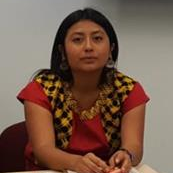Energy Colonialism, Extractivism, Socio-Ecological Transitions, and Land Planning
A special issue of Land (ISSN 2073-445X). This special issue belongs to the section "Land Socio-Economic and Political Issues".
Deadline for manuscript submissions: 25 September 2024 | Viewed by 20962
Special Issue Editors
Interests: bioregional planning; urban agroecology; short food supply chains; periurban agriculture; social participation; urban and territorial decoloniality; megaprojects, extractivism and collapse
Interests: environmental history; sustainability
Interests: crisis of civilization; socio-environmental transitions; local futures; transdisciplinary research; biocentric philosophy
2. Postdoctoral Research Associate, University of Toronto, 33 Willcocks Street, Toronto, ON M5S 3B3, Canada
Interests: migratory studies; south training action network of decoloniality
Interests: environmental impact of renewable energy; social participation; megaproyects
Interests: agroecology; extractivism; socio-ecological conflicts; territory; landscape and sustainability
Interests: tracing agrarian conflicts; communal resistance of peoples
Special Issue Information
Dear Colleagues,
Although our attention is currently focused on the COVID-19 pandemic, we are experiencing numerous environmental crises, including climate change and the accelerated depletion of fossil fuels. In the last decade, we have been crossing the Rubicon of peak oil, which indicates a decline in the reserves of this energy resource that is fundamental to the functioning of the current world system. Therefore, in the 21st century, a transition is needed in which the energy sources used on a massive scale in the last two centuries will no longer be available. At the same time, this crisis exacerbates socioenvironmental and economic conflicts, generating a multiverse of experiences that mark the time of territorial defenses and major urban mobilizations in our century.
Since technological fantasies, such as cold nuclear fusion, can be dismissed as uncertain and very distant, the hope for mitigating scarcity is to be found in renewable energies. The eyes of scientists, environmentalists, and, of course, big business are currently focused on this energy transition. In fact, according to the International Energy Agency, the growth of renewable energies in 2020 was 20% higher than in 2019.
In this sense, there is an open debate on renewable energies and in particular on wind, photovoltaic, and biomass energies due to their technical problems and the environmental impacts they generate on the environment, including, of course, the occupation and transformation of the land in which they are installed and the materials that are used for this energy transition. On the other hand, there is the added problem that the renewable energy production model is based on the construction of megaprojects, as it tends to follow the massive, centralized, and hierarchical pattern of fossil fuels and nuclear power. Finally, the lack of spatial planning for this industrial land use intensifies the socioenvironmental impacts of the so-called energy transition.
According to this, the Special Issue will focus on the following topics:
- The impacts of the energy transition on biodiversity, especially energy transport infrastructures and renewable energy megaprojects (wind farms, photovoltaic, etc.);
- The socioenvironmental and human rights impacts of wind, photovoltaic and biomass infrastructures on rural, Indigenous, and/or peasant territories;
- Analysis of territorial defense processes in the context of renewable energy megaprojects;
- Research that problematizes energy colonialism, focusing on the one hand on the sacrificial territories that are used for the generation of renewable energy and, on the other hand, on the existing inequalities in the populations access to energy;
- The relationship between mineral extraction and the energy transition, both for renewable energy generation systems and for the electrification of transport (and the world system);
- The limits and scope of extraction of scarce minerals that are needed for the infrastructure and technologies used in the energy transition;
- The environmental and socioterritorial impacts of extractivism associated with the energy transition;
- Public policies and territorial planning processes for the energy transition, with special attention to the generation of renewable energies;
- Analysis and proposals for energy and territorial models for socioecological transitions.
Prof. Dr. Alberto Matarán Ruiz
Prof. Dr. Antonio Ortega Santos
Ms. Josefa Sánchez Contreras
Dr. Ivan González Márquez
Dr. Chiara Olivieri
Mr. Helios Escalante Moreno
Mr. Luis Bolonio
Guest Editors
Manuscript Submission Information
Manuscripts should be submitted online at www.mdpi.com by registering and logging in to this website. Once you are registered, click here to go to the submission form. Manuscripts can be submitted until the deadline. All submissions that pass pre-check are peer-reviewed. Accepted papers will be published continuously in the journal (as soon as accepted) and will be listed together on the special issue website. Research articles, review articles as well as short communications are invited. For planned papers, a title and short abstract (about 100 words) can be sent to the Editorial Office for announcement on this website.
Submitted manuscripts should not have been published previously, nor be under consideration for publication elsewhere (except conference proceedings papers). All manuscripts are thoroughly refereed through a single-blind peer-review process. A guide for authors and other relevant information for submission of manuscripts is available on the Instructions for Authors page. Land is an international peer-reviewed open access monthly journal published by MDPI.
Please visit the Instructions for Authors page before submitting a manuscript. The Article Processing Charge (APC) for publication in this open access journal is 2600 CHF (Swiss Francs). Submitted papers should be well formatted and use good English. Authors may use MDPI's English editing service prior to publication or during author revisions.
Keywords
- energy transition
- biodiversity
- renewable energy
- megaprojects
- energy colonialism
- extractivism
- socioenvironmental impacts
- human rights impacts
- territorial defense
- territorial planning











